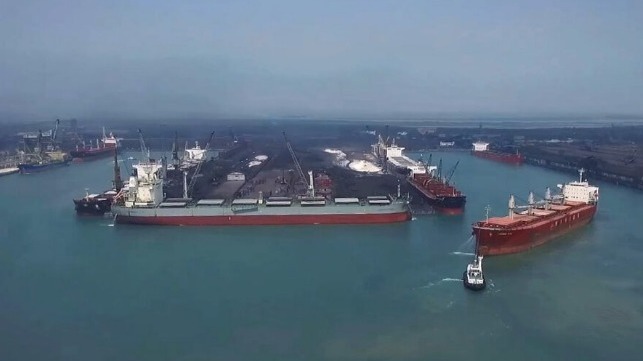Threat of Strike at India's State-Operated Ports Adverted for a Second Time

A strike that had threatened to disrupt cargo operations at India’s 12 state-owned and operated ports and which could have had a broader regional impact has been adverted. A collation of six unions representing more than 18,000 workers had set a December 15 deadline for the implementation of the agreed wage pack reporting it would otherwise begin an indefinite strike on December 17.
While the country’s privately operated ports, including the container terminal at Mundra, were not involved in the dispute, experts warned a strike would have had wide-reaching implications for the Indian economy and regional shipping. Bulkers would have been especially impacted.
The 12 ports, which include operations in Mumbai, the Nehru Port, New Mangalore, Cochin, and others, handled more than 500,000 metric tons of cargo in the previous eight months of 2024. Overall cargo volume is up 2.6 percent at those ports while container volume was up over 8 percent to 8.8 million TEU.
The strike threat came after years of failed contract negotiations. The unions initially set an end-of-August deadline for a strike and it was only adverted after a marathon three-day negotiating session.
The collation of unions was demanding an 8.5 percent wage increase over five years starting from January 2022 when the prior contract expired. They also wanted a cost-of-live adjustment and won a new performance-based bonus system. Job security as the ports modernize was another issue during the negotiations.
The Indian Ports Association however failed to implement the agreement leading to the December deadline. It said there were issues with the agreement that had to be resolved but they have finally been settled and the agreement could move forward.
The unions however have accused the IPA of being “lethargic” and delaying to implement the agreement despite having won agreement from Prime Minister Narendra Modi and approval from the Union Cabinet in October.
The Ministry of Ports, Shipping, and Waterways was reported ready to issue the order on Wednesday to the IPA to implement the wage agreement. A spokesperson for the union confirmed that the implementation would proceed and that they had withdrawn the planned industrial action.


